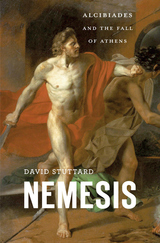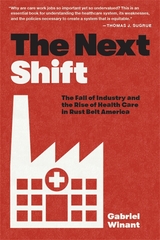4 start with N start with N

Alcibiades was one of the most dazzling figures of the Golden Age of Athens. A ward of Pericles and a friend of Socrates, he was spectacularly rich, bewitchingly handsome and charismatic, a skilled general, and a ruthless politician. He was also a serial traitor, infamous for his dizzying changes of loyalty in the Peloponnesian War. Nemesis tells the story of this extraordinary life and the turbulent world that Alcibiades set out to conquer.
David Stuttard recreates ancient Athens at the height of its glory as he follows Alcibiades from childhood to political power. Outraged by Alcibiades’ celebrity lifestyle, his enemies sought every chance to undermine him. Eventually, facing a capital charge of impiety, Alcibiades escaped to the enemy, Sparta. There he traded military intelligence for safety until, suspected of seducing a Spartan queen, he was forced to flee again—this time to Greece’s long-term foes, the Persians. Miraculously, though, he engineered a recall to Athens as Supreme Commander, but—suffering a reversal—he took flight to Thrace, where he lived as a warlord. At last in Anatolia, tracked by his enemies, he died naked and alone in a hail of arrows.
As he follows Alcibiades’ journeys crisscrossing the Mediterranean from mainland Greece to Syracuse, Sardis, and Byzantium, Stuttard weaves together the threads of Alcibiades’ adventures against a backdrop of cultural splendor and international chaos. Navigating often contradictory evidence, Nemesis provides a coherent and spellbinding account of a life that has gripped historians, storytellers, and artists for more than two thousand years.

This companion to the two-volume Dumbarton Oaks Medieval Library edition and translation of the Histories by Laonikos Chalkokondyles is the first book-length investigation of an author who has been poorly studied. Providing biographical and intellectual context for Laonikos, Anthony Kaldellis shows how the author synthesized his classical models to fashion his own distinctive voice and persona as a historian.
Indebted to his teacher Plethon for his global outlook, Laonikos was one of the first historians to write with a pluralist’s sympathy for non-Greek ethnic groups, including Islamic ones. His was the first secular and neutral account of Islam written in Greek. Kaldellis deeply explores the ethnic dynamics that explicitly and implicitly undergird the Histories, which recount the rise of the Ottoman empire and the decline of the Byzantine empire, all in the context of expanding western power. Writing at once in antique and contemporary modes, Laonikos transformed “barbarian” oral traditions into a classicizing historiography that was both Greek and Ottoman in outlook.
Showing that he was instrumental in shifting the self-definition of his people from Roman to the Western category of “Greek,” Kaldellis provides a stimulating account of the momentous transformations of the mid-fifteenth century.

Winner of the Frederick Jackson Turner Award
Winner of the Isaac and Tamara Deutscher Memorial Prize
Winner of the C. L. R. James Award
A ProMarket Best Political Economy Book of the Year
Men in hardhats were once the heart of America’s working class; now it is women in scrubs. What does this shift portend for our future?
Pittsburgh was once synonymous with steel. But today most of its mills are gone. Like so many places across the United States, a city that was a center of blue-collar manufacturing is now dominated by the service economy—particularly health care, which employs more Americans than any other industry. Gabriel Winant takes us inside the Rust Belt to show how America’s cities have weathered new economic realities. In Pittsburgh’s neighborhoods, he finds that a new working class has emerged in the wake of deindustrialization.
As steelworkers and their families grew older, they required more health care. Even as the industrial economy contracted sharply, the care economy thrived. Hospitals and nursing homes went on hiring sprees. But many care jobs bear little resemblance to the manufacturing work the city lost. Unlike their blue-collar predecessors, home health aides and hospital staff work unpredictable hours for low pay. And the new working class disproportionately comprises women and people of color.
Today health care workers are on the front lines of our most pressing crises, yet we have been slow to appreciate that they are the face of our twenty-first-century workforce. The Next Shift offers unique insights into how we got here and what could happen next. If health care employees, along with other essential workers, can translate the increasing recognition of their economic value into political power, they may become a major force in the twenty-first century.

Winner of the Frederick Jackson Turner Award
Winner of the Isaac and Tamara Deutscher Memorial Prize
Winner of the C. L. R. James Award
A New York Times Book Review Editors’ Choice
A ProMarket Best Political Economy Book of the Year
“The Next Shift is an original work of serious scholarship, but it’s also vivid and readable…Eye-opening.”
—Jennifer Szalai, New York Times
“A deeply upsetting book…Winant ably blends social and political history with conventional labor history to construct a remarkably comprehensive narrative with clear contemporary implications.”
—Scott W. Stern, New Republic
“Terrific…A useful guide to the sweeping social changes that have shaped a huge segment of the economy and created the dystopian world of contemporary service-sector work.”
—Nelson Lichtenstein, The Nation
Pittsburgh was once synonymous with steel, but today most of its mills are gone. Like so many places across the United States, a city that was a center of blue-collar manufacturing is now dominated by health care, which employs more Americans than any other industry. Gabriel Winant takes us inside the Rust Belt to show how America’s cities have weathered new economic realities.
As steelworkers and their families grew older, they required more health care. Even as the industrial economy contracted sharply, the care economy thrived. But unlike their blue-collar predecessors, home health aides and hospital staff work unpredictable hours for low pay. Today health care workers—mostly women and people of color—are on the front lines of our most pressing crises, yet we have been slow to appreciate that they are the face of our twenty-first-century workforce. The Next Shift offers unique insights into how we got here and what could happen next.
READERS
Browse our collection.
PUBLISHERS
See BiblioVault's publisher services.
STUDENT SERVICES
Files for college accessibility offices.
UChicago Accessibility Resources
home | accessibility | search | about | contact us
BiblioVault ® 2001 - 2024
The University of Chicago Press









